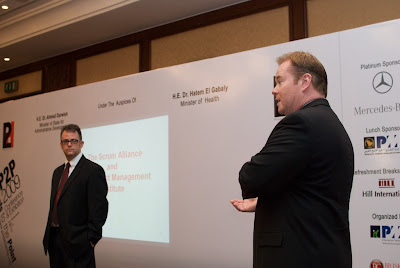A colleague of mine, Donna Brighton of the Brighton Leadership Group, introduced me to a new model for change, the ADKAR model, developed by Prosci.
- Awareness
- Desire
- Knowledge
- Ability
- Reinforcement
Next, do people have the desire to change? If they've come to accept the status quo, maybe there's no incentive to improve.
The third step is knowledge. This is where training would play a part, so people can understand the desired future state.
However, knowledge doesn't guarantee ability. Can people try the new approach without fear of punishment? Is there support in place to let them succeed?
Finally, when the desired behavior comes about, what is being done to make sure people don't fall back to their old habits?
I have always used the term Organizational Change Management (OCM) when I talk about this type of change, to distinguish it from technical change management such as scope change. I have always approached OCM from the organizational perspective; how do I get the organization to move in the new direction? What I haven't thought about much is that an organization is made of individuals, and each person will make this change journey at their own pace. My effort to change the organization must take individuals into consideration. I'll have my early adopters that can help me. I'll also have those late adopters that I have to account for. I can't assume everyone will change according to my OCM plan.
As for my clients, I think the awareness is there, so it's time to focus on the other steps to get them on the road to agility.

